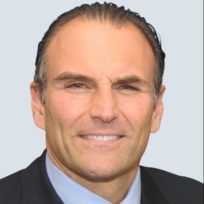The Department of Justice (DOJ) has been cracking down on fraud against the government for decades. Yet hospitals, insurers, drug manufacturers, pharmacies and healthcare companies of all kinds are largely unaware of this major threat to their balance sheets.
In 2018, the DOJ collected more than $2.8 billion in settlements and judgments from civil cases involving fraud and false claims against the government, $2.5 billion of which involved the healthcare industry. Since 1986, the federal government has collected nearly $60 billion in penalties from businesses.
These cases and investigations often stem from the False Claims Act, a federal law that imposes liability on persons and companies that defraud government programs. The False Claims Act has been around since Abraham Lincoln was president, but recently picked up steam in the 1980s when Congress strengthened the law by providing incentives for whistleblowers to file lawsuits.
Typically, these offenses are completely unintentional. However, the healthcare industry has found itself squarely under the DOJ’s spotlight, with multi-million-dollar False Claims Act settlements announced every year. For instance, AmerisourceBergen paid $625 million just last year to settle one of these cases. Medical device manufacturer Alere also paid $33.2 million to resolve similar allegations.
When targeted in a False Claims Act case, companies are subject to massive costs in the form of attorneys’ fees, external auditor and expert costs associated with defending these claims as well as large fines, penalties and damages. While larger corporations are better positioned to handle these massive litigation costs, smaller companies run the risk of going out of business if targeted.
Thankfully, healthcare regulatory insurance policies cover a large portion of these matters, and have become an essential coverage for all healthcare companies. It remains one of the most underutilized policies among healthcare companies, despite being relatively affordable and comprehensive.
In addition to providing coverage for False Claims Act claims, other regulatory triggers exist that the right regulatory policy will cover, such as HIPAA, EMTALA, Stark Violations and Anti-Kick Back statutes. Given the amount of consolidation that exists for physician groups, hospitals and other organizations, the Stark and Anti-Kickback statutes are becoming more and more of a land mine for organizations with expanding affiliations or interests.
However, not all healthcare regulatory coverage is created equal, and companies must consider the following points when securing coverage.
The specialized attorneys required to fight a lawsuit related to a False Claims Act allegation do not come cheap. Lawyers who have the level of expertise necessary in these situations can charge as much as $800 per hour. However, some healthcare regulatory policies set limits on reimbursements for these expenses or require use of panel counsel. This can leave companies on the hook for hundreds of dollars per hour in attorneys’ fees that were unaccounted for when hiring counsel. By negotiating predetermined rates on attorneys’ fees and/or obtaining pre-approval for counsel selection, healthcare companies can ensure they’re able to secure the best lawyers possible to fight these complex cases while limiting out of pocket expenses.
The contract language written into healthcare regulatory policies must be reviewed carefully. Some healthcare regulatory insurance carriers have narrowly defined terms with respect to what constitutes a “loss” or a “claim” and this can significantly limit how the policy responds if the DOJ is “questioning” a situation or considering an investigation. If the matter is not accepted as a “loss” or “claim” under the policy, the interruption to the business as well as the attorneys’ fees may not be covered. Other policies will not cover any costs until an actual lawsuit is filed, leaving the organization liable for the thousands of dollars that went into the early stages of the process. Healthcare organizations must also ensure prior acts coverage is in place to be protected from events that occur before the policy’s coverage incepts. Only an insurance broker with expertise in healthcare regulatory policy contract language can ensure each company’s specific coverage needs are met.
Many healthcare companies already carry directors and officers (D&O) liability or errors and omissions (E&O) insurance coverage that they mistakenly believe fully covers them in the event of a DOJ Health Claims Act investigation or lawsuit. However, these policies are typically insufficient to respond adequately to these types of allegations and claims with significantly higher retentions, coinsurance penalties, lower limits and other coverage limitations that can leave an organization woefully underinsured in the event of a claim. Healthcare regulatory insurance policies can fill in the blanks left behind within D&O and E&O policies. A broker with intimate knowledge of a healthcare organization’s comprehensive insurance needs can help them secure a healthcare regulatory policy that fits in with existing policies to ensure all liabilities are covered.
Like many other insurance policies, healthcare regulatory coverage often comes with preventative services that can help healthcare organizations avoid DOJ investigations and lawsuits altogether. Some carriers will bring in experts to perform audits on a company’s books to identify and address any potential discrepancies or problem areas that might attract the attention of the DOJ. Compliance is a huge issue in the healthcare industry. Some policies include assessments that help healthcare companies ensure they’re up to date and following all regulations that govern their industry.
The DOJ is clearly committed to cracking down on government fraud in the healthcare industry. The only way to protect your business fully is to secure robust healthcare regulatory coverage. An experienced broker can look at your business’ existing insurance coverage and potential exposures and match your organization with a product in the market that meets your needs at a competitive price.
Click here for a printable download.

Executive Partner, National Accounts
Licensed Professional Engineer; service in U.S. Navy Civil Engineer Corps
25 years of risk management experience